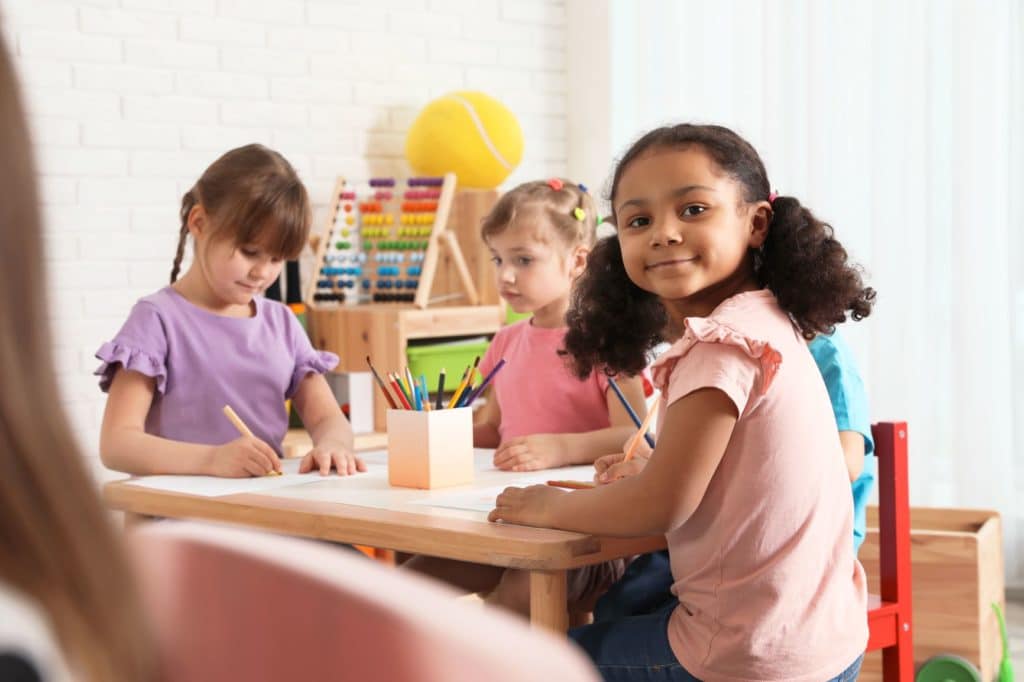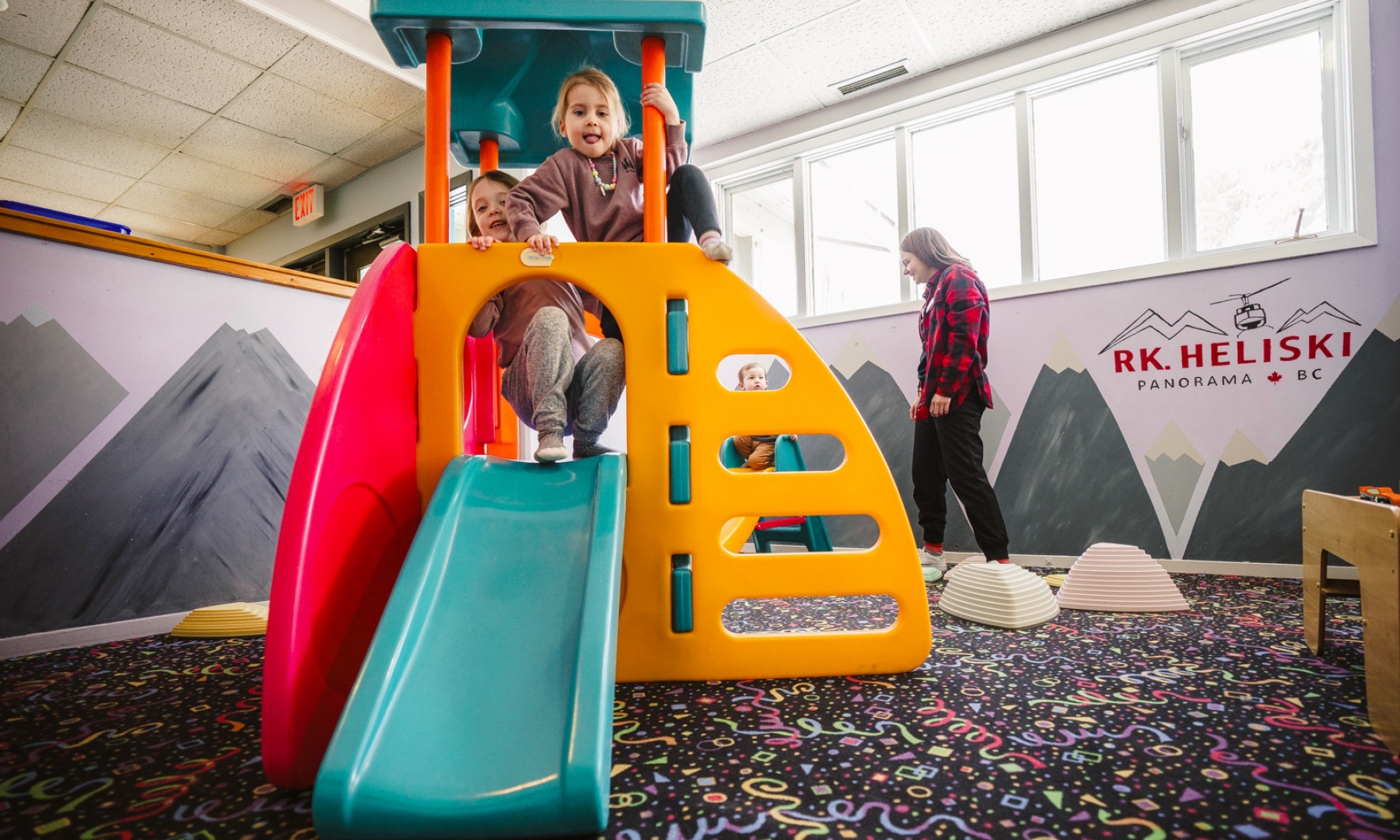Trusted Infant Daycare Near Me: Ensuring Your Baby's Comfort and Security
Trusted Infant Daycare Near Me: Ensuring Your Baby's Comfort and Security
Blog Article
Comprehending the Relevance of Childcare for Your Toddler's Social Growth and Discovering Knowledge With Engaging Activities
The significance of daycare in shaping a toddler's social development and discovering can not be overemphasized, as it supplies an organized setting loaded with engaging activities that are essential for early growth. As we discover the complex advantages of day care, one should think about exactly how these foundational experiences affect a youngster's future social communications and general advancement.

Advantages of Social Communication
Social interaction plays a vital function in the developmental trajectory of young children, functioning as a structure for crucial social skills. Involving with peers permits kids to exercise interaction, find out to reveal their emotions, and create empathy. With shared play and participation, they start to understand social norms, such as taking turns and sharing, which are vital components of effective interpersonal partnerships.
Additionally, social interactions add to cognitive advancement. As toddlers connect with their peers, they improve their language skills, increase their vocabulary, and enhance their ability to articulate feelings and thoughts. This exchange of ideas fosters essential reasoning, as kids learn to bargain, fix troubles, and browse conflicts.
Additionally, social interaction promotes emotional law. Direct exposure to various social situations assists kids identify and handle their emotions, eventually causing better strength and versatility. The capacity to create friendships and attachments likewise enhances their sense of belonging and self-esteem, which are vital for total wellness.
Importance of Engaging Activities
Involving tasks are crucial for cultivating a revitalizing setting that improves young children' social development. These tasks not just mesmerize young kids's focus but likewise promote active participation, enabling them to discover their environments artistically. Via play-based understanding, young children establish vital skills such as analytical, participation, and compassion, every one of which are important for building healthy partnerships with peers.
Joining engaging activities, such as group video games, art projects, and interactive narration, urges young children to express their sensations and concepts. This expression is essential for emotional knowledge and assists them understand the viewpoints of others. When toddlers engage in these tasks with each other, they find out to work out roles, share resources, and collaborate, which are essential aspects of social communication.
In addition, a well-structured environment that consists of varied and stimulating tasks assists in keeping toddlers encouraged and focused. This motivation cultivates a love for finding out and expedition, laying the foundation for future academic experiences. Ultimately, involving activities in day care settings are pivotal fit social abilities, preparing toddlers for effective communications past the classroom, and nurturing their overall development during these developmental years.
Developing Interaction Abilities
Reliable communication abilities are vital for young children as they navigate their very early social interactions. In a daycare setup, children are revealed to varied social circumstances that motivate verbal and non-verbal communication. Engaging in discussions with caretakers and peers fosters language growth, enabling kids to share their demands, feelings, and thoughts a lot more properly.

Additionally, day care environments offer opportunities for kids to observe and mimic interaction styles of their adults and peers. This observational learning is essential as kids notice social cues, tone, and body movement, which are crucial components of effective interaction.
Promoting Independence and Self-confidence
As kids fine-tune their interaction skills, they simultaneously begin to discover their independence and develop confidence in social settings (toddler daycare near me). Day care gives an organized environment where kids can engage in various tasks that motivate freedom. From choosing their own activities to joining group tasks, these experiences empower young children to choose and express themselves
In a daycare setup, children are often provided with possibilities to solve issues individually, whether it's figuring out just how to share toys or fixing problems with peers. This promotes critical thinking and promotes self-direction. Furthermore, caretakers support this advancement by offering positive reinforcement and advice, assisting useful source kids to browse social interactions with Discover More confidence.

Team tasks, such as cooperative games or collaborative art jobs, help with team effort and teach kids the relevance of collaborating. Through these communications, youngsters learn to communicate their ideas and sensations, further boosting their self-esteem and social skills.
Eventually, cultivating freedom and confidence in childcare not just prepares toddlers for future social atmospheres however likewise lays the foundation for a resilient mindset, equipping them with necessary life abilities as they remain to learn and grow.
Building Lifelong Learning Structures
A solid structure for long-lasting learning is essential for kids, as their early experiences shape their mindsets in the direction of education and learning and inquisitiveness. Daycare environments play a critical role in this developmental stage by giving organized chances for exploration and interaction. Engaging activities, such as team play, arts and crafts, and interactive storytelling, boost cognitive growth while urging social interaction.
Through these experiences, kids find out crucial abilities such as analytical, communication, and cooperation. They are presented to the principle of finding out as a pleasurable, collective process as opposed to a duty, which cultivates a favorable mindset in the direction of education and learning. Direct exposure to varied viewpoints and peer interactions in childcare settings enhances psychological intelligence, advertising empathy and durability.
Caregivers and educators also contribute significantly to building this structure by modeling curiosity and excitement for knowing. By encouraging concerns and helping with conversations, they create an atmosphere where youngsters feel risk-free to reveal themselves and discover new concepts. Ultimately, the mix of supportive partnerships and engaging tasks in day care setups lays the foundation for a lifelong love of learning, furnishing toddlers with the skills and frame of mind essential for future academic and individual success.
Verdict

The significance of day care in forming a toddler's social advancement and learning can not be overstated, as it provides a structured environment filled with appealing tasks that are essential for very early development.Social interaction plays a vital function in the developmental trajectory of young children, serving as a foundation for vital social abilities. When kids involve in these activities together, they find out to bargain duties, share sources, and work together, which are fundamental elements of social communication.
Eventually, engaging tasks in daycare setups are critical in forming social skills, preparing toddlers for effective communications beyond the classroom, and nurturing their general development throughout these formative years.
Ultimately, the advantages of engaging tasks in day care setups play a considerable function in preparing toddlers for future social communications and difficulties. daycare for infants near me.
Report this page